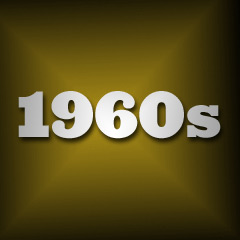
|
![]()
Greatest Films of the 1960s
1960 | 1961 | 1962 | 1963 | 1964 | 1965 | 1966 | 1967 | 1968 | 1969
Title Screen Film Genre(s), Title, Year, (Country), Length, Director, Description 


Alphaville (1965, Fr./It.) (aka Alphaville, Une Etrange Aventure De Lemmy Caution), 99 minutes, D: Jean-Luc Godard
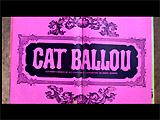


Cat Ballou (1965), 97 minutes, D: Elliott Silverstein
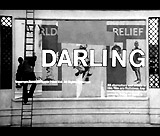


Darling (1965, UK), 128 minutes, D: John Schlesinger



Doctor Zhivago (1965, UK), 197 minutes, D: David Lean
Doctor Zhivago provided expansive, magical images of a frozen wintry Russian fairyland, a train ride through the Urals, and an ice-frozen house/castle (or dacha).


Falstaff (1965, Sp./Switz.) (aka Chimes at Midnight, or Campanadas a Medianoche), 113 minutes, D: Orson Welles
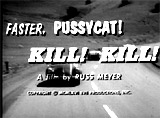


Faster, Pussycat! Kill! Kill! (1965), 83 minutes, D: Russ Meyer




Help! (1965, UK), 92 minutes, D: Richard Lester
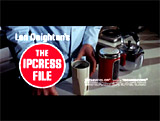



The Ipcress File (1965, UK), 109 minutes, D: Sidney J. Furie


A Patch of Blue (1965), 105 minutes, D: Guy Green



Pierrot Le Fou (1965, Fr.) (aka Crazy Pierrot, or Pierrot Goes Wild), 110 minutes, D: Jean-Luc Godard
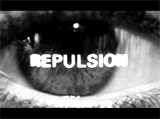


Repulsion (1965, UK), 104 minutes, D: Roman Polanski
A distubing, tense, frightening psychological horror thriller and one of Roman Polanski's best films - his second feature film (after Knife in the Water (1962)) and his first in English. A macabre tale about a beautiful, timid, young blonde manicurist named Carol Ledoux (21 year-old Catherine Deneuve) from Belgium. The film basically takes place in a single location -- Carol's tiny London (Kensington) apartment -- which she shares with her older, sexually-liberated sister Hélène (Yvonne Furneaux), who is involved with a married boyfriend, a salesman named Michael (Ian Hendry). While they are away on holiday in Italy for two weeks, Carol suffers a several mental breakdown with hallucinations and nightmares, one after the other. She imagines such harrowing images as a phantom night-time rapist, and giant cracks appearing from the walls with hands emerging from them to grope her (borrowed from Cocteau's Beauty and the Beast (1946)). A film's tagline declared: "The nightmare world of a virgin's dreams becomes the screen's shocking reality." The film revolves around the deterioration of the sexually-repressed, claustrophobic, and paranoid Carol (brilliantly acted by Deneuve), and leads to two brutal murders. The film borrows many elements from Alfred Hitchcock's Psycho (1960) and Michael Powell's Peeping Tom (1960, UK), such as sexual voyeurism and subtle auditory hints, and derives much of the suspense and dread from the use of everyday sounds (such as dripping water, the ticking of an alarm clock, a ringing telephone and doorbell, etc.). Often called one of the first English "New Wave" films, the film was controversial in both its graphic depictions of rape, but also featured the first orgasm 'heard' on the British screen.

Ship of Fools (1965), 149 minutes, D: Stanley Kramer


The Shop on Main Street (1965, Czech.) (aka Obchod na Korze), 125 minutes, D: Ján Kadár and Elmar Klos
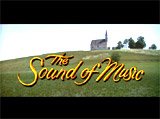

The Sound of Music (1965), 174 minutes, D: Robert Wise
Based on the Rodgers and Hammerstein stage musical and the true story of the von Trapp family - a lovely Best Picture-winning film with a mixture of comedy, romance, and suspense - and a wonderful collection of musical tunes. Restless novice postulant Maria (Julie Andrews) at the Nonnberg Abbey in Salzburg, Austria, first pictured daydreaming on the hillside surrounded by the beautiful Alps, is persuaded by the Reverend Mother (Peggy Wood) to take a governess position for the motherless, singing family of stern widower Captain von Trapp (Christopher Plummer), who is engaged to Baroness Schroeder (Eleanor Parker). The seven children include: 16 year-old Liesl (Charmain Carr), 14 year-old Friedrich (Nicholas Hammond), 13 year-old Louisa (Heather Menzies), 11 year-old Kurt (Duane Chase), 10 year-old Brigitta (Angela Cartwright), almost 7 year-old Marta (Debbie Turner), and 5 year-old Gretl (Kym Karath). The children have a well-deserved reputation for scaring off caretakers, but Maria wins them over, and falls in love with her employer, amidst the ominous Nazi occupation. Includes the songs: "Maria," "The Sound of Music," "My Favorite Things," "You Are Sixteen, Going On Seventeen," "Climb Ev'ry Mountain," "Do-Re-Mi," and "Edelweiss."


A Thousand Clowns (1965), 118 minutes, D: Fred Coe



Tokyo Olympiad (1965, Jp.) (aka Tôkyô Orinpikku), 170 minutes, D: Kon Ichikawa